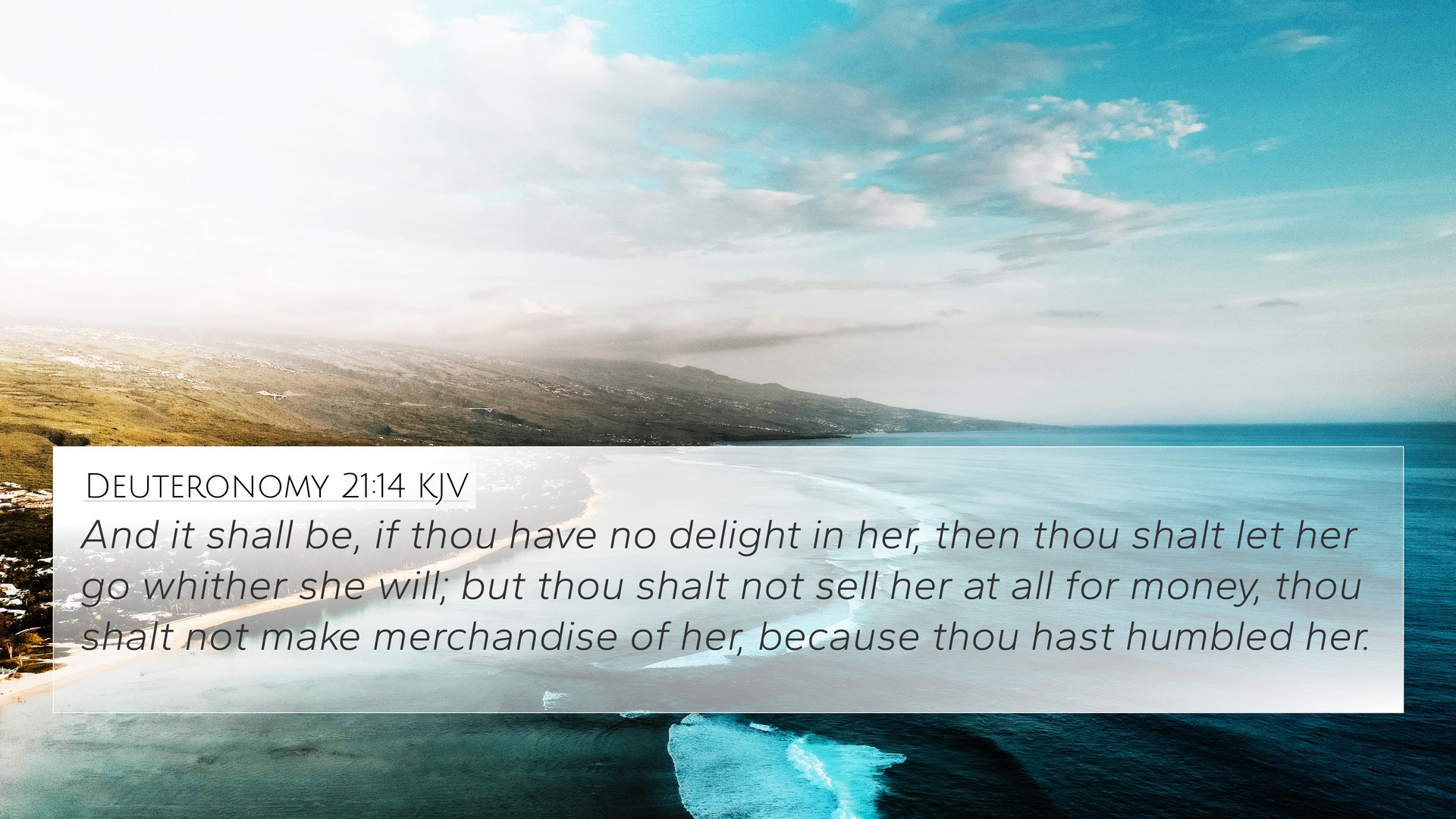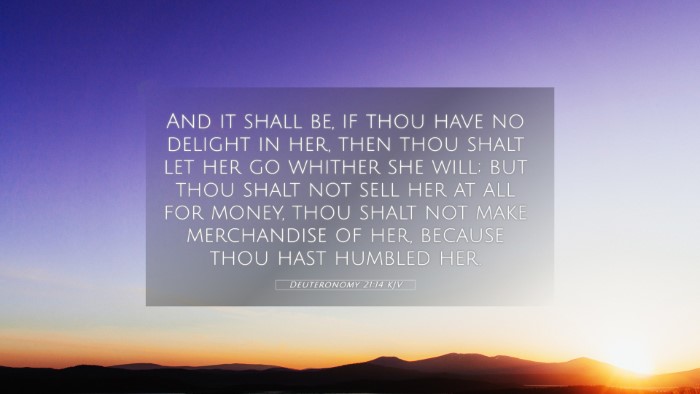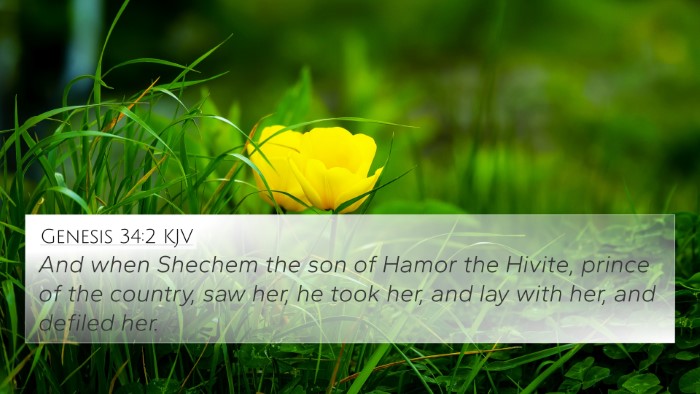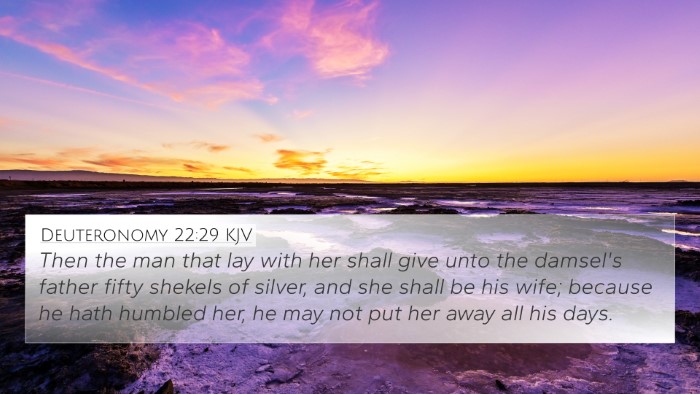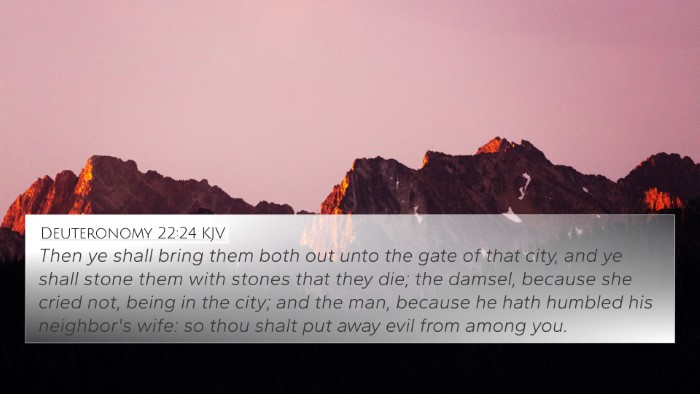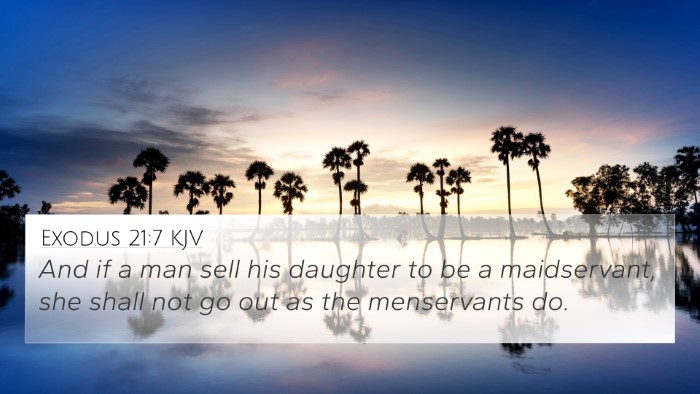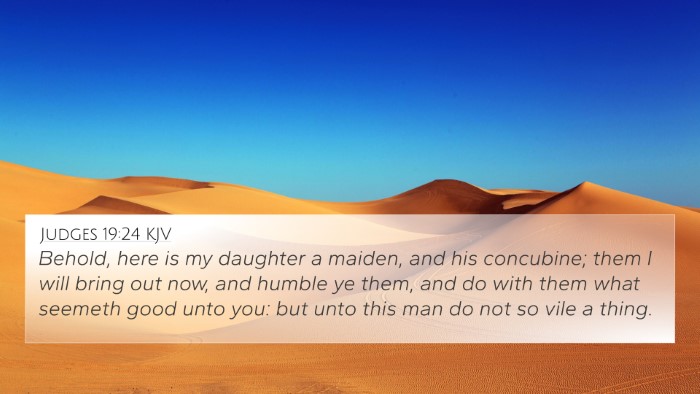Meaning and Interpretation of Deuteronomy 21:14
Deuteronomy 21:14 states: "And it shall be, if you have no delight in her, then you shall set her free; but you shall certainly not sell her for money; you shall not make merchandise of her, because you have humbled her." This passage addresses the treatment of a captive woman who is taken as a wife, emphasizing the dignity and rights of individuals even in difficult circumstances.
Summary of Insights from Public Domain Commentaries
In exploring this verse, we can draw insights from prominent biblical commentators:
- Matthew Henry: Henry underscores the importance of compassion and justice in dealing with individuals, even those taken captive. He notes that although the situation was dire, the law provides for humane treatment and prohibits exploitation.
- Albert Barnes: Barnes emphasizes the legal framework within which these provisions were made, highlighting how the Israelites were to differentiate between ownership and personal relationships. He argues that this regulation reflects the moral principles that govern relationships among people.
- Adam Clarke: Clarke reflects on the mercy displayed in the law, pointing out that while the woman was a captive, she was still to be treated with respect and allowed to choose her path if she was deemed undesirable.
Key Themes and Connections
This verse brings to light various themes within the biblical context, including:
- Human Dignity: The treatment of individuals with respect.
- Mercy and Justice: Balancing human rights with legal requirements.
- Divine Law: The guiding principles established by God for ethical living.
Cross-References for Further Study
Deuteronomy 21:14 can be cross-referenced with the following verses for a deeper understanding of the themes of dignity, justice, and mercy:
- Exodus 21:7-11: Laws regarding female servants and their rights.
- 1 Timothy 1:10: A condemnation of selling and exploiting individuals.
- Matthew 7:12: The principle of treating others as you would like to be treated.
- James 1:27: Pure religion defined as caring for orphans and widows.
- Isaiah 1:17: Seeking justice and defending the oppressed.
- Proverbs 31:8-9: Advocacy for those who cannot speak for themselves.
- Galatians 3:28: Equality of all believers in Christ, stressing dignity in the eyes of God.
Connections between Bible Verses
The connections revealed in Deuteronomy 21:14 illustrate the broader biblical context of compassion, righteousness, and the upholding of an ethical framework as exemplified throughout Scripture. It sets a precedent for understanding how laws governing social relations should reflect the moral character of God:
- Linking Bible Scriptures: Each scripture speaks volumes about God's expectations for justice and mercy.
- Comparative Bible Verse Analysis: When analyzed together, these verses provide a clearer moral compass for believers.
- Thematic Bible Verse Connections: Examining themes like justice, mercy, and human dignity across verses illustrates a consistent biblical narrative.
- Bible Verse Parallels: Parallel narratives emphasize that God's heart is for the marginalized and oppressed, as seen in both Old and New Testament teachings.
Tools for Bible Cross-Referencing
To understand the thematic connections and nuances in verses like Deuteronomy 21:14, consider leveraging various tools for effective cross-referencing:
- Bible Concordance: A useful reference tool to identify connections and themes.
- Bible Cross-Reference Guide: Provides scripture citations that relate to similar topics.
- Cross-Reference Bible Study: Engaging in studies that interlink various verses enhances understanding.
Conclusion
Deuteronomy 21:14 speaks powerfully about the treatment of individuals and the overarching principles of love, justice, and mercy that govern God’s expectations for humanity. By utilizing cross-references and commentaries, believers can build a more substantial understanding of how these biblical themes interconnect and resonate throughout the Scriptures.
